Disclosure: Meeple Mountain received a free copy of this product in exchange for an honest, unbiased review. This review is not intended to be an endorsement.
There are no happy endings in Viking sagas. Oh sure, someone lives, but usually not the one you had hoped, and they’re bound to be miserable. Regardless of the outcome, though, sagas are rippin’ good times defined by endless and often widening bouts of deeds and consequences.
Knarr is an engines-building card-game from designer Thomas Dupont and publisher Pandasaurus Games. It is the longship of card games—swift and highly effective. The action escalates and the game sails off into the sunset in 15-30 minutes.
Calculating like Signy
Play a card into one engine, or weaken that engine to build another. These are the choices in every turn of Knarr. Players build a cascading tableau of stunning viking cards arranged by color. When a new card is added to its stack, it provides every boon depicted in the stack—points, reputation, bracelets, and/or helmets. By the time there are four or *gasp* five cards in waiting, the resource engine sings like a tagelharpa.
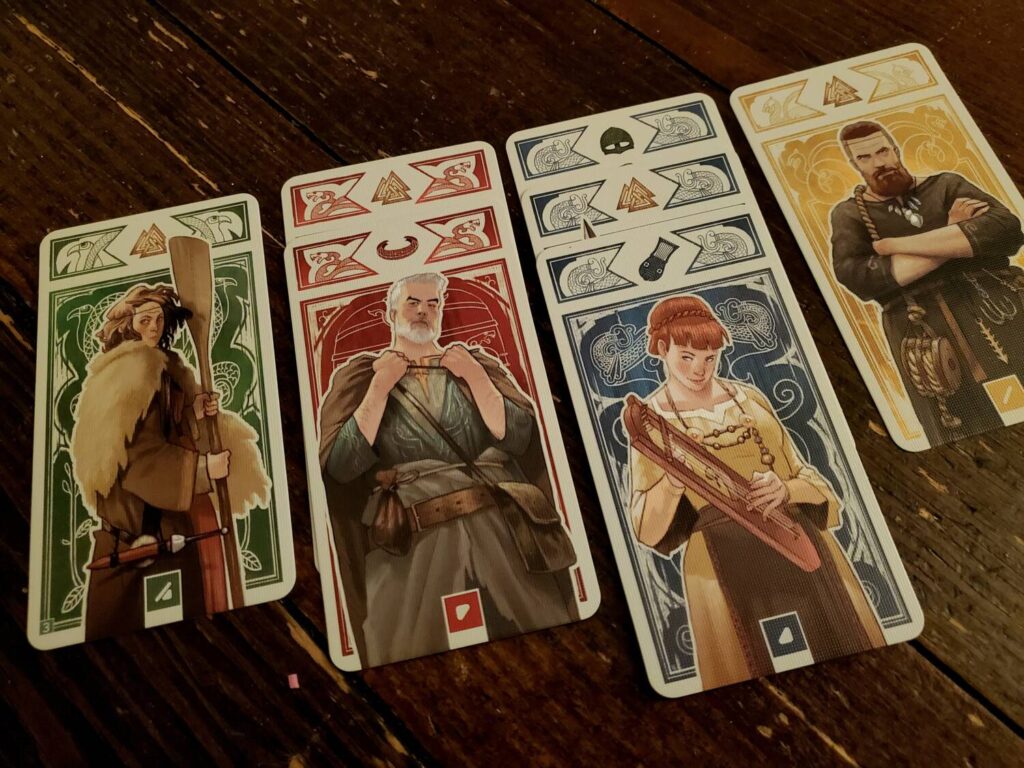
Undercutting the joy of the engine, however, is the knowledge that those cards are fated for the discard pile, viking brethren spent as currency in the name of exploration. The exploration cards stack near the player’s longship board as part of another engine—one which features three ribbons triggered with bracelets. One bracelet triggers the leftmost ribbon, two bracelets the first two, and three bracelets, the whole lot. Explorations provide instant bonuses at purchase and add the possibility of drawing random vikings back into the tableau among the usual spoils. The cards come from two tiers, one of utility (resources) and one of glory (points), to suit your desires.
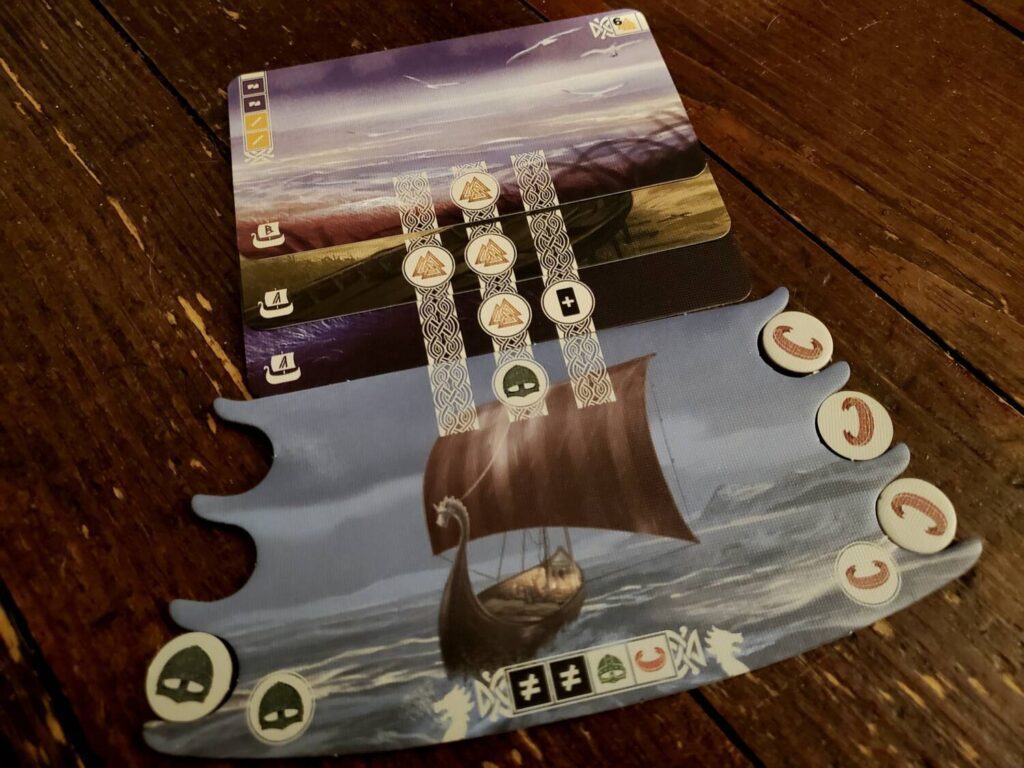
Because the bracelet action can be taken as a side activity once per turn, the allure is strong to devise and execute some fantastical self-sustaining engine that both rewards the scoreboard and supplies its own needs in jewelry. And yet every viking card laid into the little engine is so ridiculously satisfying that there is genuine sorrow in saying goodbye to these kinsmen. The genius of the design is that you must build the viking engine and queasily dismantle it in order to obtain the exploration cards. You can spend the aforementioned helmet tokens in place of the cards, but sacrifice is inevitable.
Reputation is tempting, but it burns slow. As the marker advances, points begin to trickle in at the start of every turn. It’s enticing to push that track for leisurely points, but the real cost is time. Knarr is a race to forty points—and it is a race in which you can see the end coming. Sloth is hardly a strategy. You watch others’ viking stacks get longer and exploration cards grow frighteningly strong. You see the way your opponents have established bracelet income and how they spend their helmets with thrift and wisdom. Then you look at your tableau and wonder how you got into the frustrating mess before you. What you don’t realize is that everyone feels the same inadequacy.
Misfortunate like Erp
The rub of Knarr is that the crescendo is not at forty points. Peak excitement hovers around thirty-two. Somewhere near the thirty point threshold, everyone has visions of the end. Quick calculations, for example, might reveal a nine point turn for the final player, indicating the game will end. At that point, unless you can score beyond their capability or get in the way (with no guarantee that a better card won’t come to light), the game has ended. There aren’t many viking sagas about finishing second. Sometimes you just sit back and wait for the death knell.
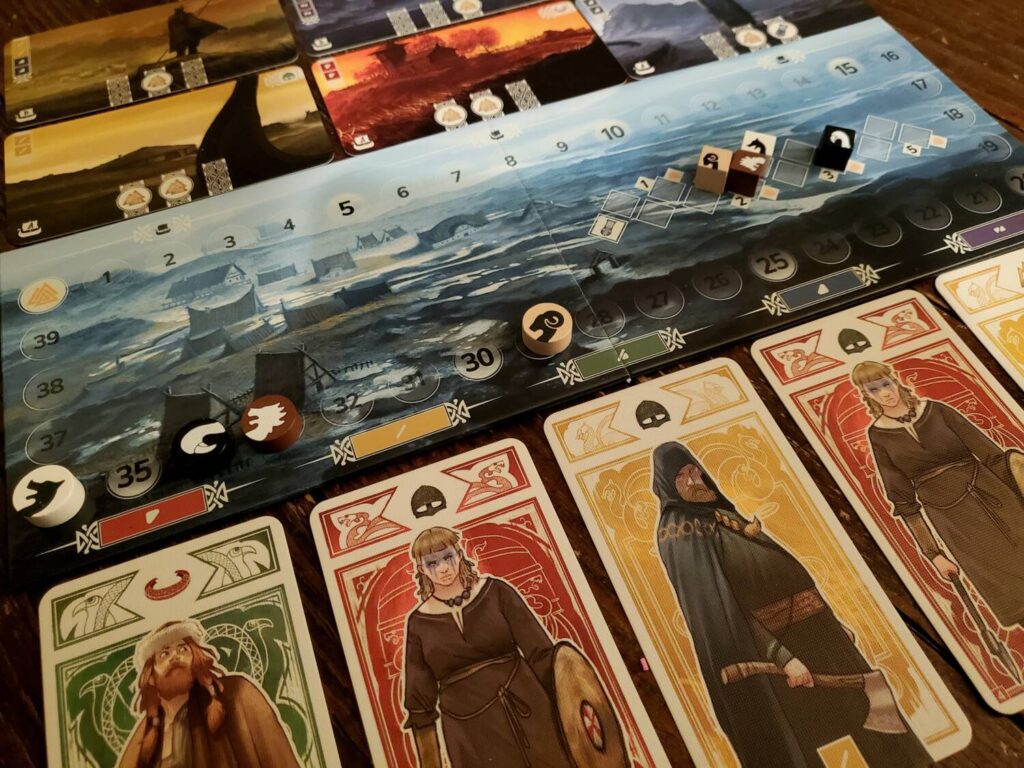
Of course, the distinct joy of Knarr is that it’s over in 15-30 minutes. Two-player games pass like lightning. Turns are so fast that four-player games are still like the chasing thunderclap. Even if you employ the included special power module that opens one door each game to some simple and circumstantial superstrength, this little card game is quick and enjoyable. The actions are instinctive, but there is always something to try, some new iteration to consider.
Despite being a race, Knarr is more about the blocks than the finish line. It is a game of recognizing opportunities before the opening gun, finding the early stride, and then timing the furious burst at the end. There is a lot of satisfaction in running the engine—more than you might expect, even if dear ol’ one-eyed Odin is waiting to knock you down onto your chin before the finish line.
Knarr is good.


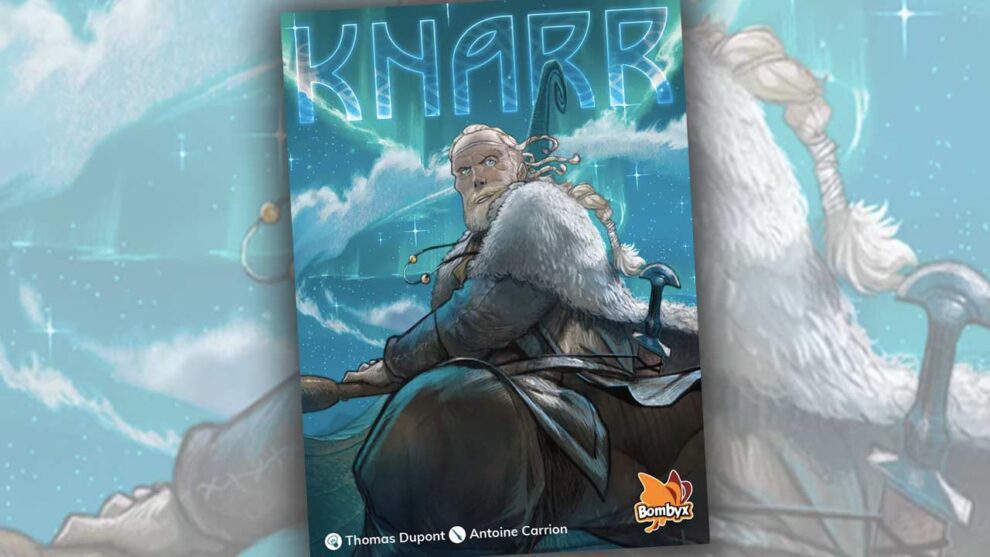

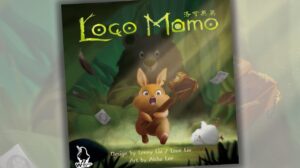







Add Comment